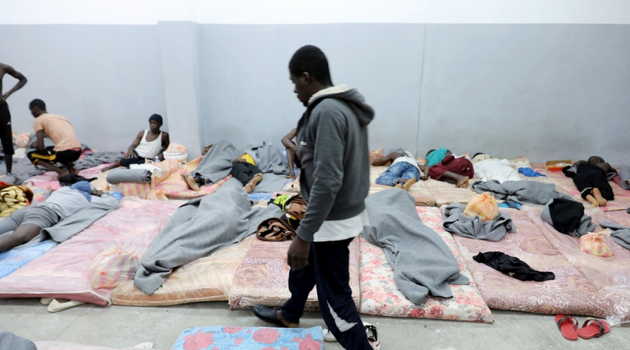The UN Refugee Agency (UNHCR), and the UN Migration Agency (IOM), have presented their plans for expanding operations in Libya and enhancing their support to migrants, refugees, asylum seekers and Libyans affected by the ongoing conflict.
The United Nations High Commissioner for Refugees Filippo Grandi joined IOM Director General William Lacy Swing at a senior-level briefing at IOM’s Geneva headquarters where they briefed member states on their recent missions to Libya and called for support to broader stabilization efforts in the country.
UNHCR issued today a Supplementary Appeal for US$75.5 million to meet the increased humanitarian and protection needs of people in Libya – including internally displaced persons (IDPs) and host communities, as well as refugees and asylum seekers. The appeal includes protection monitoring and interventions, as well as advocacy on issues related to respect for human rights, access to basic services, asylum procedures and freedom of movement.
“We have urgent work to do in Libya and can only do it together,” said UNHCR’s Grandi, adding “We are going the extra mile in trying to make a difference for hundreds of thousands of people.”
IOM in April launched a three-year Action Plan for Libya with two key objectives. The first is to provide evidence based humanitarian assistance and protection to both displaced Libyans and migrants. The second objective is to stabilize Libyan communities, as well as to build Libyan capacities in migration management. That appeal is for in excess of US $180 million, lasting for a total of 36 months.
While IOM has already started to implement the Action Plan, thanks to funding from some donors, greater financial support is needed in order to urgently assist and protect migrants and conflict affected populations in Libya, Director General Swing said. He emphasized all IOM activities are coordinated and implemented in cooperation with the Libyan authorities and UNHCR.
(Source: UNHCR)
(Picture: Refugees and migrants sleep on the floor at Tariq al-Sikka detention facility in Tripoli, Libya. © UNHCR/Iason Foounten)





